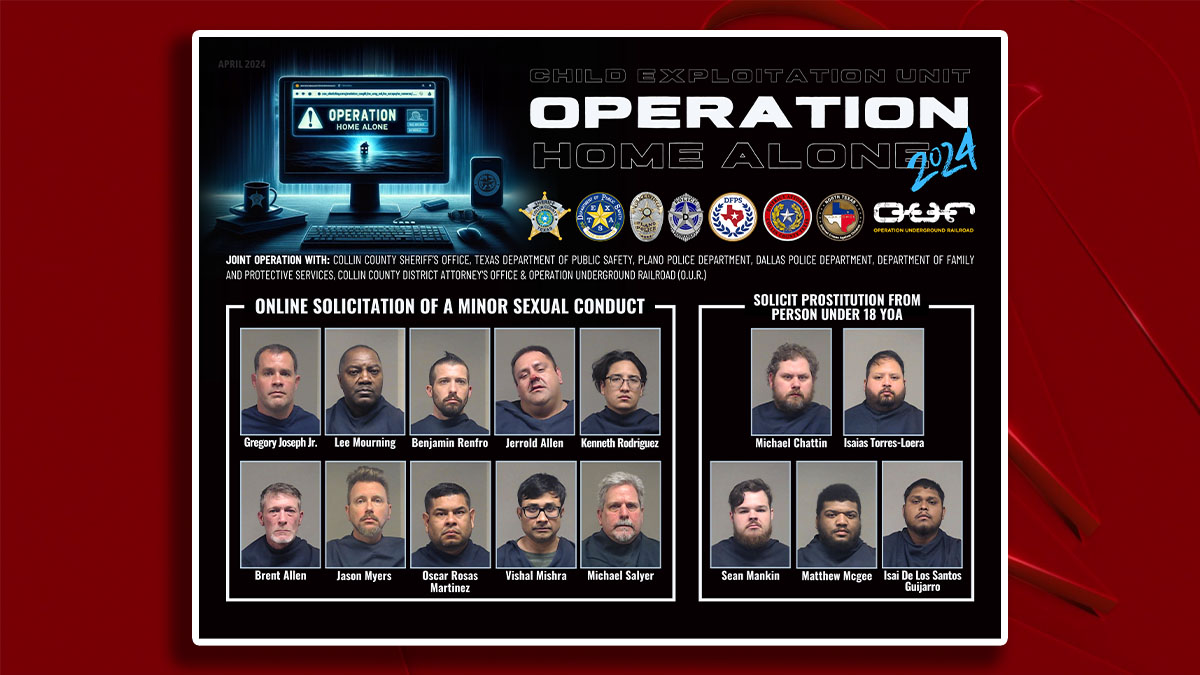UPDATE: The people in charge of city inspections didn't know so many restaurants were so overdue until NBC 5 pointed it out. The city says it inspected all of the restaurants on the list. Inspectors did visit that Burger King on Live Oak Street, Sammy’s in Uptown and Hibiscus on Henderson in the past two weeks. All of them passed with good scores and have a history of good scores on past inspections.
The city of Dallas has been scrambling to inspect hundreds of restaurants because of an NBC 5 investigation.
NBC 5 discovered that the city's inspection system has broken down so badly that some restaurants haven't been checked in years -- not even once.
Wherever you eat, you never know what's happening in the kitchen. That's why cities have inspectors -- to check for things that could make you sick.
Or at least that's what we thought they were doing, until NBC 5 started asking questions and digging through city records.
Our investigation turned up a list of 241 restaurants the city of Dallas hasn't checked since at least 2009.
NBC 5 followed health inspectors to one of those restaurants, a diner that hadn't been checked in so long that the owner wondered if the city was ever coming back.
"I said, 'What happened? You forgot about me? You forgot my name, my place?'" said Mo Mokhtari, owner of Dallas Donut.
The list of the more than 200 places that Dallas inspectors haven't visited since 2009 includes everything from fast food places such as a Burger King on Live Oak Street to barbecue joints such as Sammy's in Uptown to fine dining spots such as Hibiscus on Henderson Avenue and Trece on Travis Street.
Local
The latest news from around North Texas.
The people in charge of city inspections didn't know so many restaurants were so overdue until NBC 5 pointed it out. As of Friday, March 2 the city said all of the restaurants on the list had been inspected. Inspectors did visit that Burger King on Live Oak Street, Sammy’s in Uptown and Hibiscus on Henderson in the past two weeks. All of them passed with good scores and have a history of good scores on past inspections.
"The focus is -- as we identify these places -- the focus is, how do we prevent this in the future?" said James Childers, assistant director of Dallas Code Compliance Services.
In Dallas, city policy is to inspect every restaurant twice per year. Childers called it "troublesome" that some restaurants hadn't been inspected even once in two years. He pledged to find out why his department didn't realize the inspections had not been completed.
Peter Snyder, an expert in food safety with more than 40 years of experience in the restaurant industry, said what happens in Dallas is typical of many big cities he sees around the country. Cities have cut back on inspectors and are not able to keep up with the workload, and restaurant customers can end up paying the price.
"You can have massive foodborne outbreaks -- which we're having these days where somebody forgets to wash their hands, and you get hepatitis A in the salsa, and 60 people get sick," Snyder said.
Two years ago, Dallas had 23 restaurant inspectors.
But the city cut five positions, and then five more inspectors left in the last year and a half. They've never been replaced.
Today Dallas has 13 people to inspect more than 6,000 restaurants.
If each restaurant got inspected twice per year as according to the city's plan, that would mean more than 13,000 yearly inspections for 13 inspectors.
Even restaurant owners worry about what's happening.
"We would certainly like to see more consistency in the health inspection process," said Tracey Evers, president of the Greater Dallas Restaurant Association. "We're as surprised as you to see some of these numbers."
Many restaurants count on inspectors to help educate their staff and keep them up-to-date on the rules.
"There's nothing that replaces that one-on-one interaction with the health inspector and the restaurant," Evers said.
In Fort Worth, NBC 5's investigation also found restaurants that haven't been checked in a long time.
NBC 5's questions sent the city scrambling to inspect a list of about 50 restaurants it hadn't visited in at least two years.
And when the inspectors finally went into some of those kitchens, records show they found critical health violations such as no paper towels in the restroom, broken refrigerator thermometers and workers who didn't have proper training to handle food.
"Certainly we'd like to have more frequent contact and be able to go to these establishments on a more regular basis," said Scott Hanlan, of Fort Worth's Code Compliance Division.
Over the last three years, Fort Worth has cut two health inspector positions from its budget
It now has 13 people inspecting 2,100 restaurants. But the same inspectors are also responsible for checking things such as swimming pools, food trucks and large special events that serve food.
Most of the restaurant inspections Fort Worth skipped were at fast food places. The city considers many chains to be lower priority because they serve prepared food that's assembled and they don't handle things such as raw chicken and fish.
Fort Worth has now inspected all of the restaurants since we asked about them. But next year, the city plans to skip inspections at more of those lower priority restaurants unless staffing increases.
Hanlan said he believes all restaurants would have been inspected over the last two years if his department had two additional inspectors on the payroll.
In Dallas, city inspectors have spent two weeks trying to get to all of the restaurants they hadn't seen in two years. And they're now trying to figure out why they didn't know about that list until NBC 5's investigation began.
"We're taking a full review of our case management system to see why so many are falling between the cracks and why our staff wasn't getting notification about the fact that these inspections are overdue," said James Childers, assistant code compliance director.
Dallas is now trying to hire five more inspectors in the next week or two to try to get the staffing levels up.
Both Dallas and Fort Worth claim they have not had any reports of people getting sick at any of the restaurants that were not inspected in more than two years.
But according to the U.S. Centers for Disease Control and Prevention, most cases of foodborne illness never get reported at all. Oftentimes, the person does not go to a doctor or the doctor doesn't make a specific diagnosis.
Nationally, the CDC estimates one out of every six people gets sick each year from something he or she ate. About 3,000 of those people die every year across the country.
NBC 5's Shane Allen contributed to this report.
This story was first published February 27, 2012 - 11:07 p.m.



